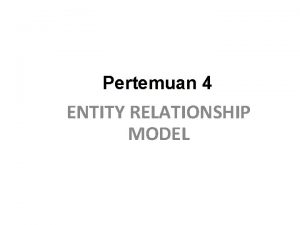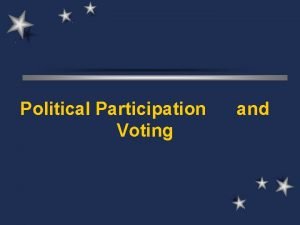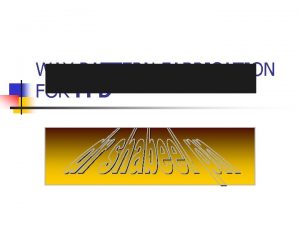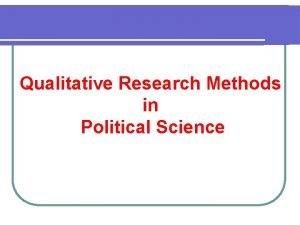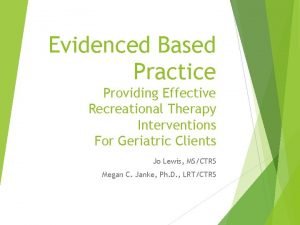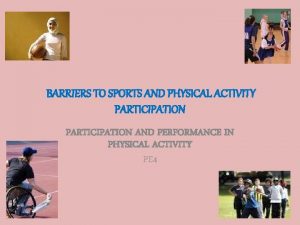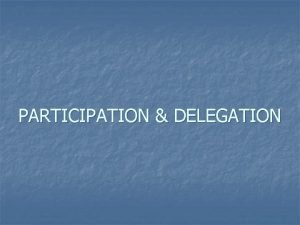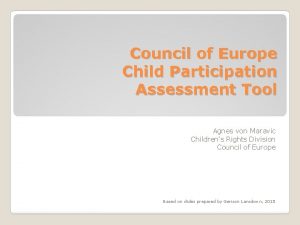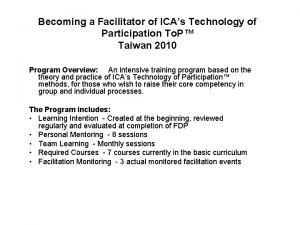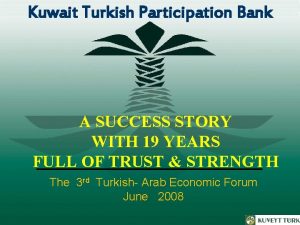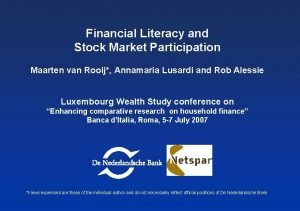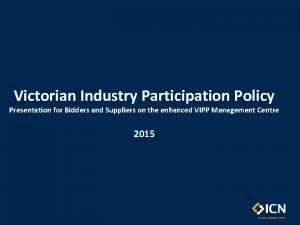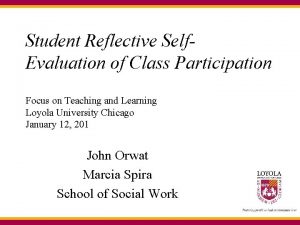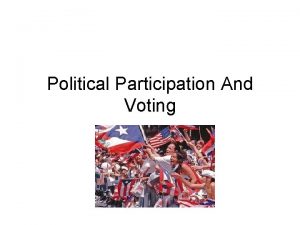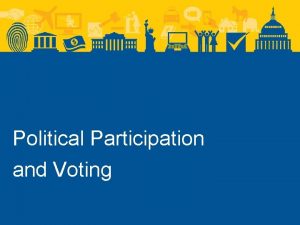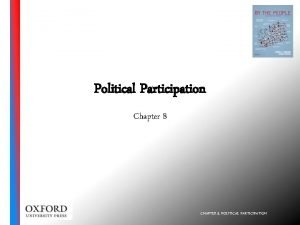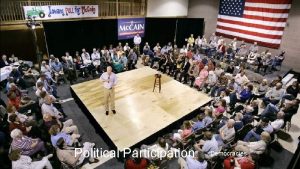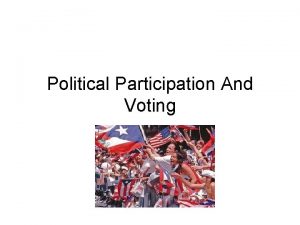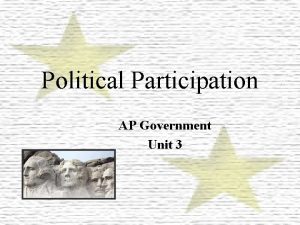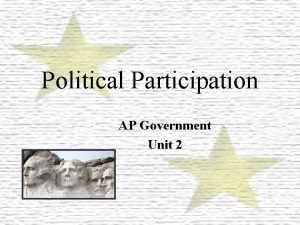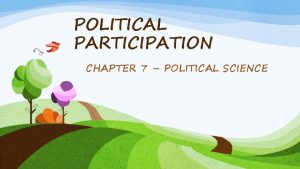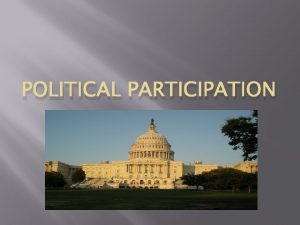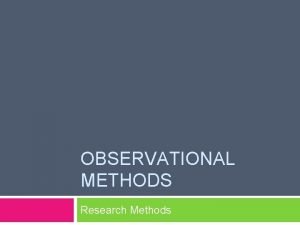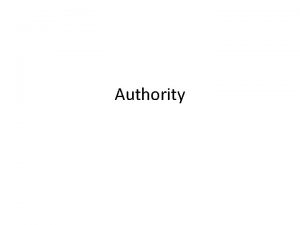POLITICAL PARTICIPATION Lisa Kucharczk Methods of Political Participation















- Slides: 15

POLITICAL PARTICIPATION Lisa Kucharczk

Methods of Political Participation Voting Discussing politics Interest groups PACs Protesting Volunteering for campaigns Donating to campaigns Running for office

Voting

Suffrage 15 th Amendment – stopped race qualifications 19 th Amendment – stopped gender qualifications 23 rd Amendment – allowed D. C. residents to participate in presidential elections 24 th Amendment – stopped poll taxes 26 th Amendment – lowered voting age to 18

Issue Voting Direct primary –nominates candidates Recall – removes an official from office Referendum – votes directly on an issue Initiative – proposes issues for officials to discuss or vote on

Voter Turnout Reasons for low voter turnout include… Negative campaigning Many frequent elections Little difference between candidates Mistrust in government Political apathy Satisfaction with current regime Low political efficacy Strenuous registration process

The Electorate – Who Votes? High income/low income More education/less education Older/younger Whites/Minorities Men/Women Moderately religious/very religious Unmarried/married Union member/ nonmember Strong party affiliation/weak affiliation

The Electorate – Who Votes? High income/low income More education/less education Older/younger Whites/minorities Men/women Moderately religious/very religious Unmarried/married Union member/ nonmember Strong party affiliation/weak affiliation

Elections

Types of Elections Primary elections nominate candidates to run in general elections. Closed primaries – voters must be registered for particular party Open primaries – choose candidate for either one party Blanket primaries – choose candidate for both parties Runoff primaries – top two candidates face each other in a second primary

Types of Elections General Voters choose from a pool of candidates of all parties and independents Special Are held if an official needs to be elected before a general election

Types of Elections Congressional Held every two years � Off-year or midterm elections Low voter turnout � Coattails Presidential National party conventions � Delegates from each state attend � Choose candidates � Write party platform � Unite party

Partisanship in Elections Maintaining – preferences stay the same Deviating – temporary support for minority party Critical – sharp switch in party loyalty Realigning – minority builds a coalition and wins Dealigning – party loyalty declines

Campaign Finance Federal Election Campaign Act (1971) � Restricted amount of money for ads, required disclosure on donations and expenses, and limited how much candidates can contribute to their campaign 1974 – Federal Election Commission established and amendments added to FECA Buckley v Valeo ruled many 1974 amendments and the restriction on personal donations unconstitutional

Campaign Finance Soft money was originally unrestricted Bipartisan Campaign Finance Reform Act (2002) � Banned soft money in federal elections and raised limits set by FECA 527 Organizations � Unregulated policy interest groups that focus on a single
 Contoh lrs
Contoh lrs Lester w. milbrath
Lester w. milbrath Gladiatorial political participation
Gladiatorial political participation Wax pattern fabrication
Wax pattern fabrication Qualitative analysis political science
Qualitative analysis political science Description of recreational activities
Description of recreational activities Cultural barriers in sport
Cultural barriers in sport Participation continuum
Participation continuum Child participation assessment tool
Child participation assessment tool Technology of participation
Technology of participation Kuwait turkish participation bank inc
Kuwait turkish participation bank inc Financial literacy and stock market participation
Financial literacy and stock market participation Sisters participation in the gathering of israel
Sisters participation in the gathering of israel An_vipp
An_vipp Class participation self-evaluation essay
Class participation self-evaluation essay Community participation
Community participation
